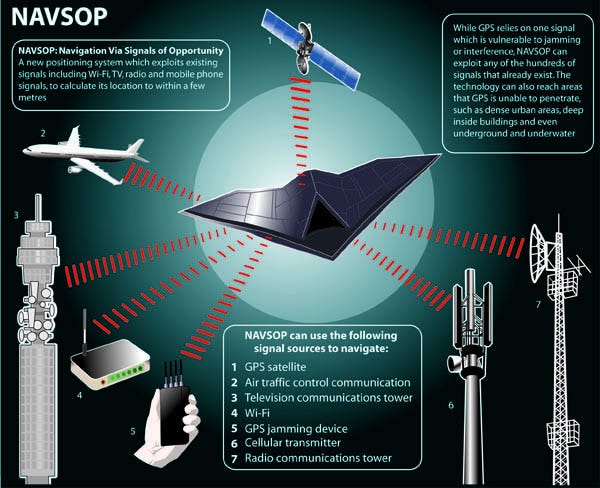UK firm pitches alternative GPS
UK-based defence firm BAE Systems has introduced a location fixing technology designed to make GPS more accurate, or replace the ageing satellite system altogether in cases where a signal is unobtainable.
July 2, 2012

UK-based defence firm BAE Systems has introduced a location fixing technology designed to make GPS more accurate, or replace the ageing satellite system altogether in cases where a signal is unobtainable.
Military, commercial and consumer platforms commonly use Global Positioning Systems (GPS) to find their position and navigate. GPS itself relies upon a specific and relatively weak satellite signal that is well known to be vulnerable to disruption.
But BAE claims its Navigation via Signals of Opportunity (NAVSOP) method is able to perform the same job as GPS by using alternative radio signals to deduce location. The firm claims to use whatever signals are available at the time, be they wifi, cellular, TV or radio broadcast.
“The real beauty of NAVSOP is that the infrastructure required to make it work is already in place. There is no need to build costly networks of transmitters and the hardware behind the system is already commercially available. Another benefit is that it can be integrated into existing positioning devices to provide superior performance to GPS,” BAE said.
A major advantage of the system is its ability to function in places where GPS is unable to reach, such as dense urban areas and deep inside buildings. It is also able to work in the most remote parts of the world, such as the Arctic, by picking up signals that include Low-Earth-Orbit satellites and other civilian signals.
According to Dr Ramsey Faragher, a principal scientist from BAE Systems Advanced Technology Centre: “The potential applications of this technology are already generating huge excitement in both civilian and military circles.”

navsop
About the Author
You May Also Like












_1.jpg?width=300&auto=webp&quality=80&disable=upscale)
